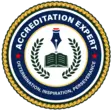Understanding the Regulatory Framework
Private post-secondary institutions that provide educational services in New Mexico must comply with the New Mexico Post-Secondary Educational Institution Act (Section 21-23-1 et seq. NMSA 1978) or the Interstate Distance Education Act (Section 21-23B-1 et seq. NMSA 1978). These statutes ensure institutions meet educational standards and protect student interests.













